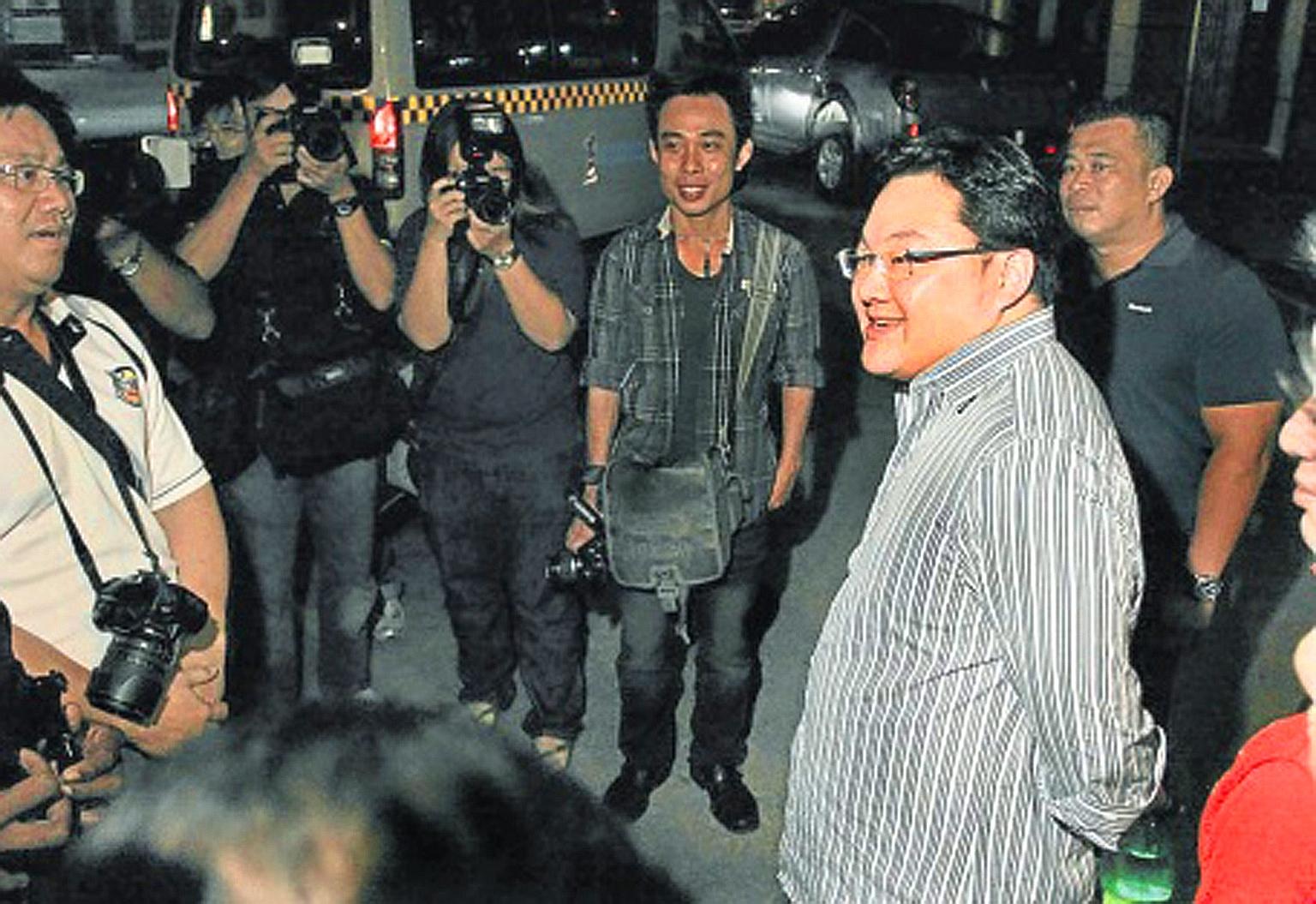HK rejected Singapore's request for help to arrest Jho Low
Fugitive Malaysian businessman wanted in 1MDB probe believed to have fled to China
Sign up now: Get ST's newsletters delivered to your inbox

Malaysian businessman Low Taek Jho speaking to journalists in Penang in 2010. Mr Low, who has arrest warrants issued against him, was reportedly in Hong Kong for months before leaving for Macau. He is believed to have travelled to the mainland from Macau by car or private jet.
PHOTO: GUANG MIN DAILY
Follow topic:
Fugitive Malaysian businessman Low Taek Jho, who is wanted in a global corruption probe in connection with state fund 1Malaysia Development Berhad (1MDB), is understood to be in China after fleeing the world's biggest casino hub.
According to media reports, Mr Low, better known as Jho Low, has arrest warrants issued against him in relation to the probe, but managed to "hide in plain sight" in Hong Kong for months before leaving for Macau. He is believed to have travelled to the mainland from Macau by car or private jet.
The Singapore Police Force yesterday disclosed that it had issued a formal request to Hong Kong for help in arresting Mr Low in April 2016, but the request was rejected.
The clarification was made to refute media reports that Mr Low and his family had been allowed to slip out of Hong Kong to Macau because neither Singapore nor Malaysia had formally requested his arrest.
The police added that Singapore also requested an Interpol Red Notice against Mr Low, which was published in October 2016.
Mr Low has been painted by United States prosecutors as a central figure who set up shell companies and arranged the transfers of tens of millions of dollars to pay Malaysian government officials, while Singapore investigators have called him a "key person of interest".
The South China Morning Post reported last Saturday that the Hong Kong police have no obligation to arrest if there is no accompanying formal request from the originating country, even though Mr Low is on a red notice.
Disputing the reports as "untrue", the police said Singapore issued an arrest warrant for Mr Low in April 2016 "following investigations and charges against him for offences of money-laundering and dishonestly receiving stolen property".
"In the same month, we sent a request to the Hong Kong Department of Justice for assistance to provisionally arrest Low under the agreement between the Government of the Republic of Singapore and the Government of the Hong Kong Special Administrative Region of the People's Republic of China for the surrender of fugitive offenders," the police said.
But Singapore's request was declined by the Hong Kong authorities, the police said.
According to Interpol's website, the organisation cannot compel any member country to arrest an individual who is the subject of a red notice. Each member country decides for itself what legal value to give a red notice within their borders.
Lawyer Derek Kang, a partner at the Singapore law firm Ho & Wee, said that Hong Kong may have felt that "Singapore's request didn't meet the requirements stipulated in their laws on extradition and mutual legal assistance".
Mr Kang is the current lawyer for Yeo Jiawei, a former BSI banker serving a 30-month jail term on four charges of witness tampering related to 1MDB investigations.
"Yeo Jiawei had undertaken to provide whatever assistance he could to the authorities, and not just in respect of Jho Low," Mr Kang said. He declined to say if he had been approached by the authorities since Malaysia reopened the probe.
The police said that the arrest warrant and the red notice against Mr Low are still in force. "Low remains a key person of interest to Singapore in ongoing 1MDB-related investigations," they said.
The Malaysian police said that they received an e-mail from the Macau authorities on Monday informing them that Mr Low had left the Chinese territory.
"The e-mail did not specify when Low left Macau. It is hard to trace him as he is believed to be using multiple passports," national police chief Mohamad Fuzi Harun said at a press conference yesterday.
The Malaysian police had made an official request to their counterparts in Macau for a team to be sent in to arrest Mr Low. Macau, an autonomous region, does not have any extradition treaty.

